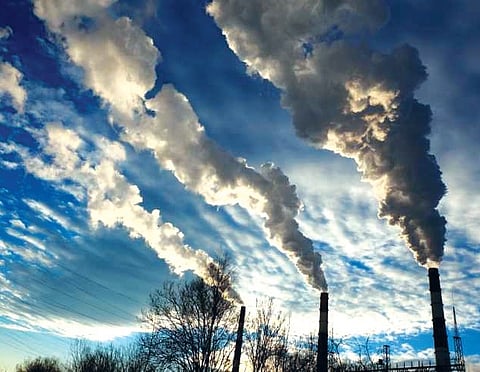

Pollution and waste management is a formidable challenge facing society. Nature provides such bountiful flora, fauna, water, plenty of oxygen and innumerable resources to make life wonderful, but humanity is destroying everything with no concern for the irreversible damage being caused.
The Union Ministry of Environment and Forests (MoEF) and similar ministries in States are responsible for carrying out policies for environmental protection and to ensure developmental projects are implemented without causing pollution.
The Pollution Control Board under the MoEF provides technical support for implementation of the policies.
In 1986 a comprehensive Environment Protection Act came into force with due amendment to the Air (Prevention and Control of Pollution) Act, 1981 and Water (Prevention and Control of Pollution) Act, 1974, which gave the Central Government the following powers:
It prescribes stringent penalties for violation of the Act and jurisdiction of civil courts is barred under the Act. Whoever fails to comply with the Act is punishable with imprisonment for a term which may extend to five years or with fine, which may extend to one lakh rupees, or with both.
This was sequel to the Stockholm Declaration by United Nations in 1972 that urged member states to take comprehensive action to fight the danger to ecology due to mindless destruction of natural resources.
The meeting agreed upon a declaration containing 26 principles concerning the environment and development, an Action Plan with 109 recommendations and a Resolution. The main principles of the Stockholm Declaration are:
1. Human rights must be asserted, and apartheid and colonialism condemned
2. Natural resources must be safeguarded
3. The Earth’s capacity to produce renewable resources must be maintained
4. Wildlife must be safeguarded
5. Non-renewable resources must be shared and not exhausted
6. Pollution must not exceed the environment’s capacity to clean itself
7. Damaging oceanic pollution must be prevented
8. Development is needed to improve the environment.
There are three major kinds of pollution, namely pollution of land, water and air covered under the act, though light and noise pollution are also major concerns.
Garbage is dumped indiscriminately, thus contaminating land. Effluents from industries, if not properly treated, irreversibly damages the land.
Fresh water is a finite resource. India, a riverine country, has 14 major rivers, 44 medium rivers and 55 minor rivers, besides numerous lakes, ponds and wells that are the primary sources of drinking water. Most of the rivers depend on the monsoon that is limited to three months in a year. They run dry for the rest of the year but carry wastewater discharged from industries and from habitats, endangering the quality of our scarce water resource.
Effluence from textile industries contaminate the water and causes multiple diseases to people using the water. Emission from vehicles and smoke from several industries pollute the air we breath. Recently the government announced that conscious efforts are being taken to cut down carbon emissions.
Power is not judiciously used and energy saving light sources are scarce. Wastage of power is another form of pollution.
The hustle and bustle of urban spaces contribute to noise and sounds exceeding acceptable decibel levels resulting in noise pollution.
Collectively among Indians there is a tendency to circumvent the law and get ahead flouting rules. This makes enforcement all the more difficult with corruption fuelling further abuse of the system. The Constitution prescribes “to protect and improve natural environment, including forests,lakes, rivers and wild life, and to have compassion for living creatures.”
Climate change looms large. In the last 100 years atmospheric temperature has increased by 0.5 degree. Sea level is constantly rising and submerging the land. Annually nearly 3.5 crore acres of forest gets denuded worldwide.
In 1947 atomic scientists, who were worried about the nuclear holocaust, symbolically set the Doomsday Clock and set it seven minutes to midnight, to warn the world of a possible catastrophe either due to nuclear war or climate change if continuous watch is not kept on the damage to planet earth. The clock hangs in the University of Chicago. Now it is reset to three minutes to midnight reminding the world we are getting closer to total damage.
The time to act is now.